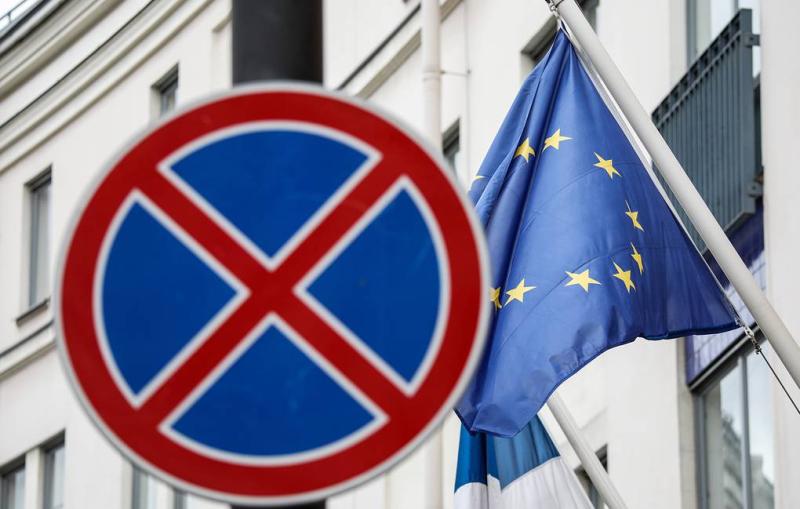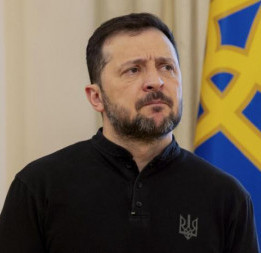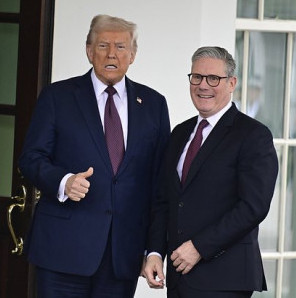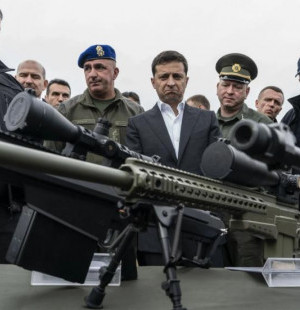
On February 24, the European Union and the United Kingdom simultaneously approved a new package of anti-Russian sanctions, the 16th successive one. Meanwhile, the United States is not currently going to impose new restrictions against the country, which is yet another discrepancy in approaches taken by the new US administration and European bureaucrats.
The basic contents of the package were known in advance. Permanent representatives of the 27 EU member states approved the document back on February 19. The new package provides for a ban on aluminum imports from Russia, Reuters, Bloomberg and the Financial Times reported at the time. Also, it targets dozens of tankers (that the EU considers part of Russia's "shadow" fleet) and a number of banks that are threatened with cutoff from the SWIFT international payment system.
In general, the list of restrictions "leaked" to the Western media ties in with the EU Council’s communique of February 24. The focus is on the aluminum business and, of course, the oil and gas sector. "74 tankers from third countries have been added to the sanctions list, bringing the total number of sanctioned vessels to 153," the EU statement says. According to Brussels, "these tankers are part of the ‘shadow fleet’ of the Russian Federation, allow circumventing oil price restrictions, and support the energy sector of the Russian Federation." The move is specifically aimed at tankers that do not belong to EU countries.
Also, as part of the 16th package of sanctions, a ban has been imposed on the storage of Russian oil and petrochemicals in the EU, plus expanded restrictions against promising oil and LNG production projects. This refers to extra obstacles to the export of oil and gas goods and technologies to the Russian Federation (including software) in order to limit the country’s hydrocarbon production and exploration. In particular, the measures are going to affect Rosneft's Vostok Oil project, along with a number of LNG ones.
Besides, the EU Council imposed a ban on financial messaging services for 13 banks as part of the newly approved anti-Russian restrictions.
The port infrastructure is in the firing line as well: the EU has banned transactions with a number of Russian ports and airports. Among other things, the block list features Ust-Luga and Primorsk in the Baltic Sea, Novorossiysk in the Black Sea, Makhachkala in the Caspian Sea, and the Volga port of Astrakhan. As stated in the statement, the ban covers any transactions with "certain Russian ports and airports used to transport drones and other combat-related goods and technology or to circumvent the Oil Price Cap by transporting Russian crude oil with vessels of the shadow fleet and other irregular and high-risk shipping practices."
The package is not very frightening altogether, with some of the "shock" points crossed out at the definition phase. For example, the G7 decided not to stir the "price gaps", as facilitated by negotiations between Russian and American diplomats in Riyadh. The Western coalition has been split up — Washington and Brussels are getting increasingly unharmonious in their views on ways to resolve the Ukrainian case.
Throughout Joseph Biden’s presidency, the White House was the "guiding star" for Brussels, which, in fact, resorted to primitively copying the anti-Russian moves by its overseas ally. And it seemed easier to the European bureaucracy to achieve the notorious "restrictive effect" in tandem. Now that Trump has become president, Washington's rhetoric is changing drastically, if not downright diametrically.
February 26 saw Donald Trump publicly allow for lifting US sanctions against Russia "at some point." "I guess it will be at some point, but right now we haven’t agreed to lift sanctions on anybody," he said as quoted by TASS. Before that, Trump told reporters that he was satisfied with his recent telephone conversation with Russian counterpart Vladimir Putin and prospects for negotiating a wide range of issues with Moscow.
Moreover, Trump expressed support for the Russian President's statement to consider American companies engaging in Russian rare earth projects. The United States would like to buy minerals from Russia, he added, according to Reuters. Earlier, Vladimir Putin proposed to contemplate the idea of joint US-Russian ventures on aluminum and rare earth metals. After a meeting on developing the relevant industry on February 24, the Russian leader said that US companies could take part in a Krasnoyarsk project involving construction activities for a hydroelectric power plant, and aluminum production. He estimated project investment at $15bn. "There is something to think about here, as well as about joint work on rare earth metals and in other areas, for example, energy," Putin concluded.
Meanwhile, Russian energy exports keep demonstrating overall stability despite the yoke of sanctions. Thus, oil supplies to key buyers — China and India — remain high. And yet, there has been a negative "interspersing" as Turkey’s large Tupras company has stopped buying Russian oil because of US sanctions.









